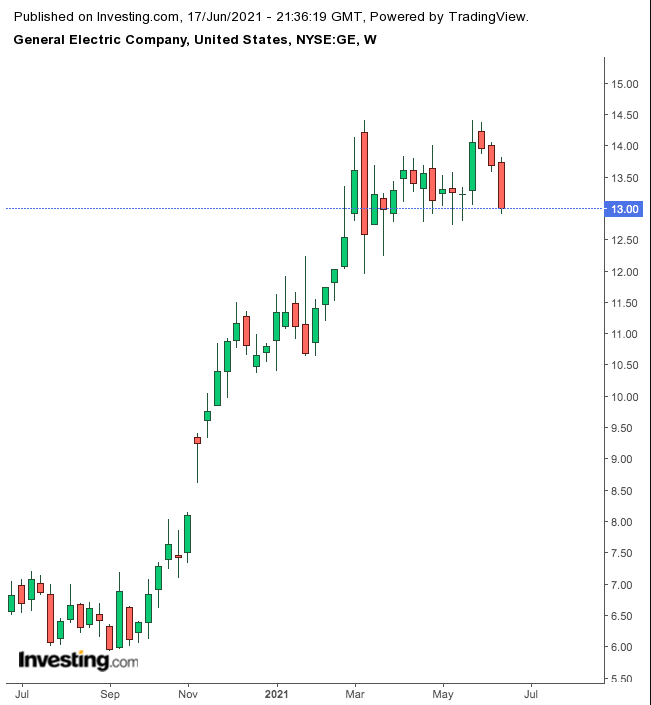Once the symbol of US industrial might, General Electric (NYSE:GE) is in the middle of its biggest turnaround. The conglomerate is quickly slimming its operations, preserving cash and trying to shore up its balance sheet.
GE’s CEO Larry Culp, who took the helm in 2018, has been tasked with selling unprofitable assets and putting the company’s best assets on a sustainable growth path.
During the past quarter, GE concluded a $30-billion deal to sell its jet-leasing business to rival AerCap Holdings. The deal creates an aircraft-finance giant to be partly owned by GE and streamlines the manufacturer’s business model.
Other businesses that Culp sold include the company’s biotech business, which was purchased by Danaher (NYSE:DHR) in a $21-billion deal that closed last year. GE also sold its iconic lightbulb business in a much smaller deal last year, and previously said it was unloading its majority stake in oil-field-services firm Baker Hughes.
The global health crisis, on the other hand, served GE another blow when its aircraft parts and leasing business went into a deep slump, prompting airlines to cancel jet orders, delay deliveries and defer lease payments.
The COVID-19 pandemic pushed GE to slash more than $2 billion in costs and preserve more than $3 billion in cash. The jet-engine division, the company’s most profitable unit before the pandemic, bore the brunt of those efforts, with a workforce reduction of 25%, or 13,000 positions.
On The Right Track?
For GE shareholders, the past five years have been a complete disaster. Its shares have lost more than half of their value, forcing the company to slash its quarterly dividend to a token penny per share.

Despite the daunting challenges that the Boston-based conglomerate faces, some investors now see value in GE, which they believe, is on the right track and could become a profitable turnaround bet. That optimism is also reflected in its stock price, which has gained 22% this year, outperforming the Dow Jones Industrial Average, which is up about 10% for the same period.
Citi recently reinstated its coverage of GE with a buy rating, saying in a note to clients that GE’s turnaround plan was “largely on track.” The firm has a $17-a-share price target for GE, representing an upside of 25% from where the stock was trading on Thursday, when it closed at $13.
In a recent note Citi said:
“With evidence of improving execution across much of GE’s portfolio and given our expectation of gradual but likely accelerating recovery in GE’s Aviation business particularly in 2H21 and beyond, we see material upside in GE’s shares as demand recovery and operational improvements support growing and more consistent/sustainable cash flow generation in ’21 and beyond.”
Citi said that the company's near-term profitability outlook was still limited, but there were signs of improvements, like a relatively small squeeze on margins in GE’s aviation segment last quarter despite the large year-over-year revenue declines.
The note added:
“Our sense is that GE’s overall focus on simplification of its portfolio and operations continues to gain traction throughout the company. The pending sale of GE’s aircraft leasing business (and expected subsequent simplification of financial reporting) is, we think, a notable step in further focusing and de-risking the company.”
Bottom Line
Despite some optimism on GE stock, the majority of analysts remain cautious on this name and don’t see much upside potential in its value from here. That said, GE is heading in the right direction with its efforts to slim its operations and generate cash.
If the aviation industry comes back strongly, as many analysts are predicting, and GE continues to move forward on its restructuring plan, its stock has the potential to move higher from here.
